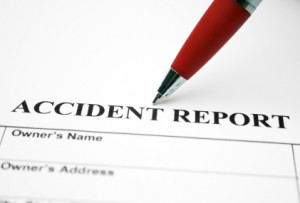Moving all your stuff from your previous residence to a new home is already stressful. What if something happens to your most valuable item while in transit? That would add even more stress to your already stressed out day.
Preparing for Accidents
How can you prepare for this eventuality? You need not worry about it even if it happens. There’s a specific insurance coverage for things that you want to protect while moving it from one place to another. If anything happens to your valuable objects, you will be reimbursed by the insurance company up to the amount of their coverage.
It is the same thing when you buy health or accident insurance. The insurance company will pay for your hospitalization if you meet an accident. In moving your precious things, you will be paying for insurance coverage for the amount of your valuable items and when they are broken while in transit, the insurance company will pay up to the coverage amount.
 Protecting Your Belongings During a Move
Protecting Your Belongings During a Move
Here are the basics in using insurance to protect your belongings during a move.
1. Basic Coverage and Full-Value Protection
A moving company such as Lowe’s will not be allowed to offer its services if it will not follow federal regulations. One of those regulations is to carry insurance coverage for the protection of their clients.
There are two types of insurance coverage that moving companies carry. The first coverage is the basic coverage called ‘released value protection’. The amount of this type of coverage is set at the barest minimum.
Should anything happen to your heirloom, you will be reimbursed only up to the minimum amount indicated on the contract. The insurance rate for this type of coverage is very affordable.
But you may dispute that your belongings are certainly worth more than the barest minimum. This is where the Full-Value Protection insurance comes in. If you want to be reimbursed for the actual value of your heirloom, you need Full-Value Protection. Unfortunately, the cost of this type of coverage is expensive. But if you want peace of mind during the move, this is the insurance protection that you should get.
The amount of the coverage is based on your valuation of the heirloom pieces you need to transport, and the cost of insurance is basically 1 per cent of your valuation. Therefore, if you put a value of $75,000 on your valuable items, you will pay $750 for its full-value protection.
With full-value protection, a moving company like Home Depot is allowed two options if an item is lost, damaged or completely destroyed. You should realize that the moving company has the final say on how compensation will be made on your property.
The moving company can either have the item repaired, if it is not totally damaged. But it needs to restore the item in the same condition as it was before the move. The company can also choose to replace the item with another item just as long as it is the same make and material.
In actual practice, the moving company will only give you the fair-market value of your damaged or destroyed item. For instance, if your one-year old refrigerator was damaged during transport, the moving company will just give you an amount of money equal to the fair market value of your refrigerator, and not replace it.
There is still another caveat that movers usually resort to: they are not required to reimburse you for more than $100 per pound, unless you specifically listed this provision on the shipping documents.
This regulation was set by the Surface Transportation Board which is the government agency that supervises moving companies. So, if you have a piece of precious trinket that is worth over $100 per pound, you must list it on the shipping documents so you may recover its full value if it gets lost during transport.
However, if you choose this option, you are required to list everything that you value more than $100 per pound. Make sure that they are included in the shipping list so that they will be fully covered. A daunting task indeed, but you need to do it to protect them.
2. Things that are not covered by insurance
You should also realize that if you pack the things yourself, they will not be covered by insurance. In this industry, valuation coverage does not require movers to pay for the items in boxes that they did not pack.
If a particular box does not show sufficient damage, the insurance company will not reimburse you for the damage to any item inside that box.
Natural disasters such as hurricanes, typhoons, earthquakes and similar occurrence are also not covered by insurance. In addition, if the items in your boxes are damaged while in storage which is not under the control of the mover, you will not be reimbursed.

